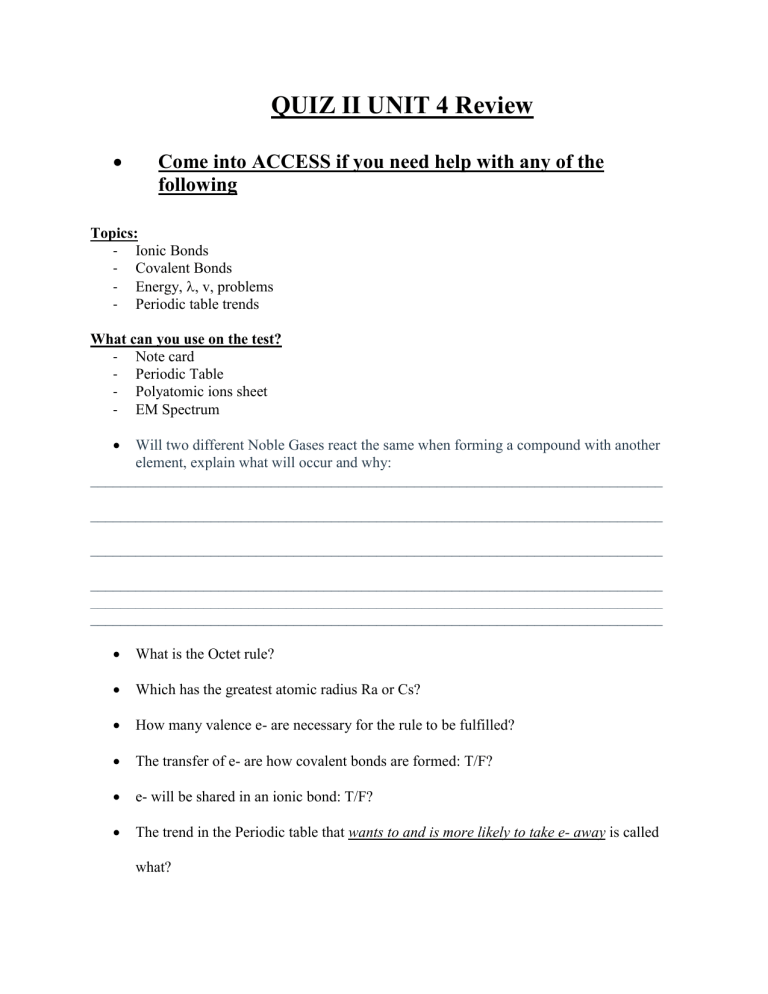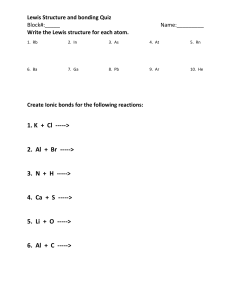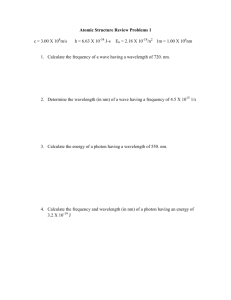Chemistry Quiz Review: Ionic Bonds, Energy, Periodic Trends
advertisement

QUIZ II UNIT 4 Review Come into ACCESS if you need help with any of the following Topics: - Ionic Bonds - Covalent Bonds - Energy, , v, problems - Periodic table trends What can you use on the test? - Note card - Periodic Table - Polyatomic ions sheet - EM Spectrum Will two different Noble Gases react the same when forming a compound with another element, explain what will occur and why: ____________________________________________________________________________ ____________________________________________________________________________ ____________________________________________________________________________ ____________________________________________________________________________ ____________________________________________________________________________ ____________________________________________________________________________ What is the Octet rule? Which has the greatest atomic radius Ra or Cs? How many valence e- are necessary for the rule to be fulfilled? The transfer of e- are how covalent bonds are formed: T/F? e- will be shared in an ionic bond: T/F? The trend in the Periodic table that wants to and is more likely to take e- away is called what? (Two parts) The Lewis dot structure shows us what? Specifically, what do the dots represent? Draw the Lewis Dot structures for the following: a. Mg b. F c. C d. Ar e. Li Energy Problems: Equations and constants: E = h and E = hc/ E = energy of one photon with a frequency of c = c = speed of light = 3.0 x 108 m/s (meters per second) c/ = h = Planck’s constant = 6.63 x 10-34 J-s = wavelength in meters = frequency in Hz (waves/s or 1/s or s-1 Calculate the frequency of light that has a wavelength of 4.25 x 10-9m. Identify the type of electromagnetic radiation. The color orange. Within the visible light spectrum has a wavelength of about 6.20 E-7 m. What is the frequency of the orange light? A photon of light has a wavelength of 0.050 cm (5.0E-4m). Calculate its energy. Calculate the frequency and determine the color of light having a wavelength of 6.80 x 10-5 cm (6.8 m) and the energy 2.92 x 10-19 J. Frequency: Color:

